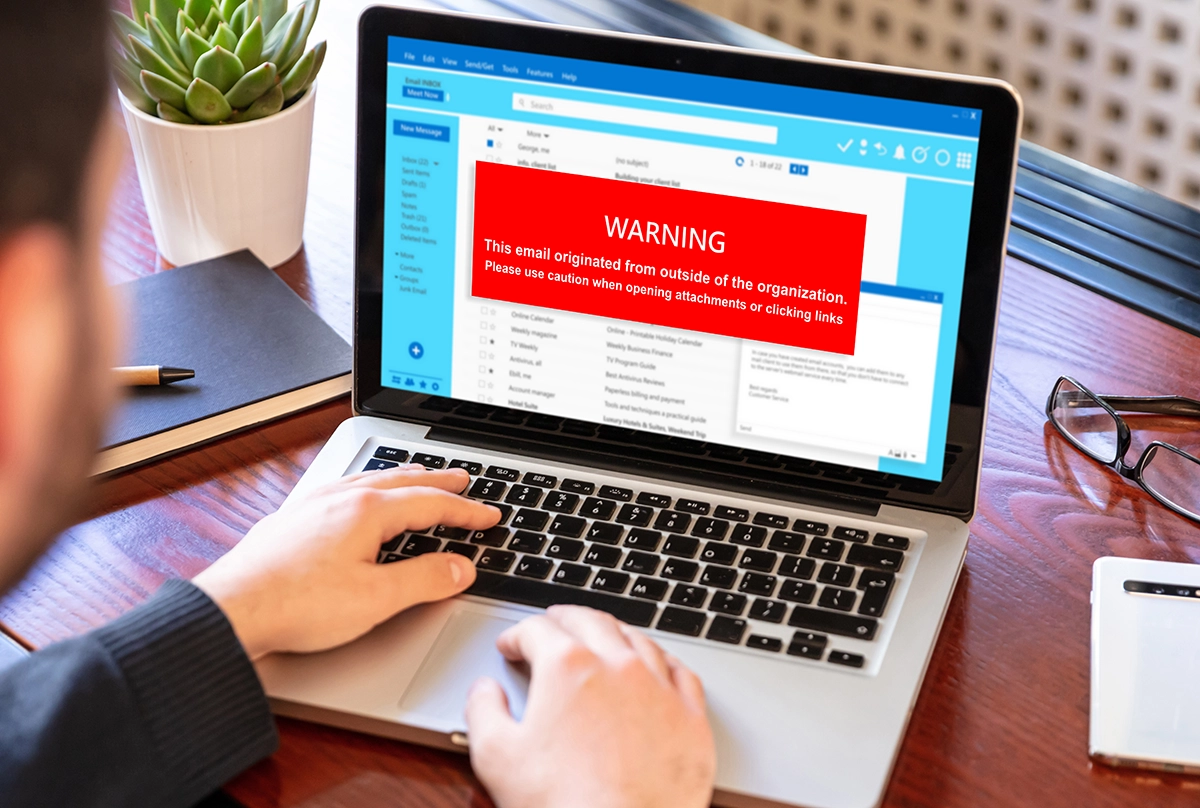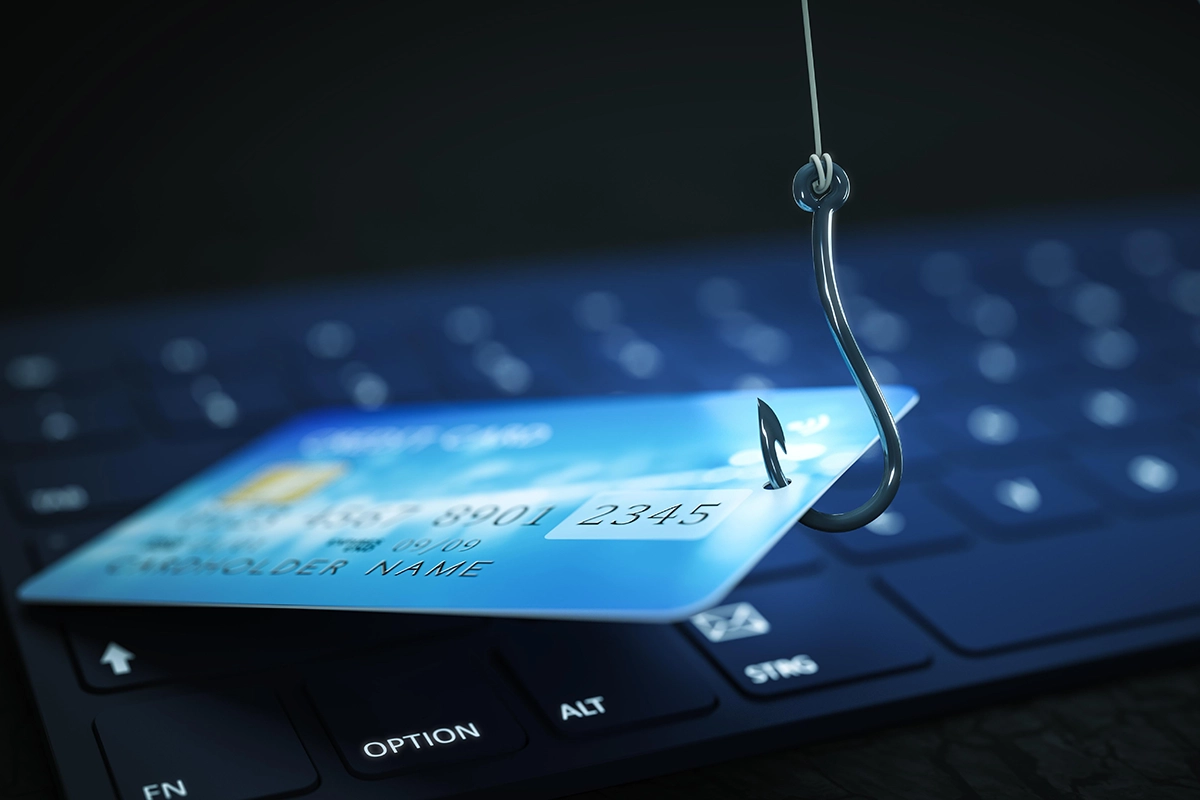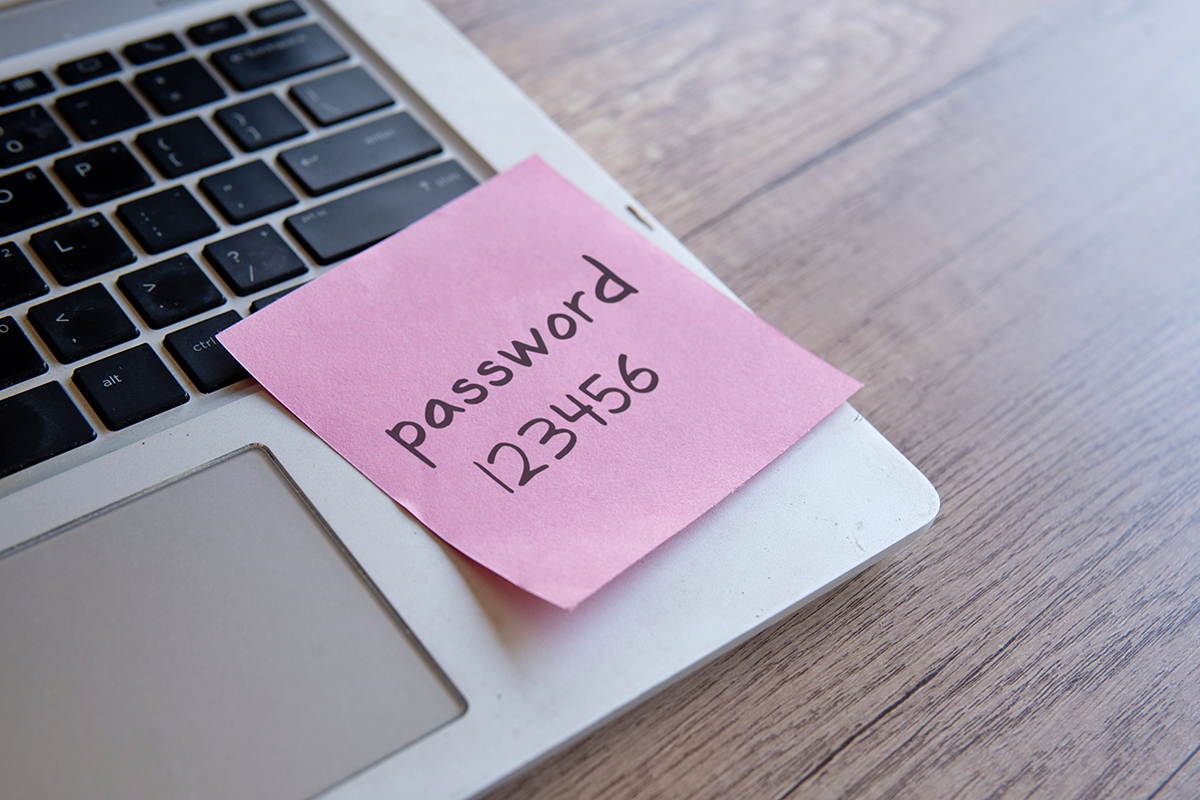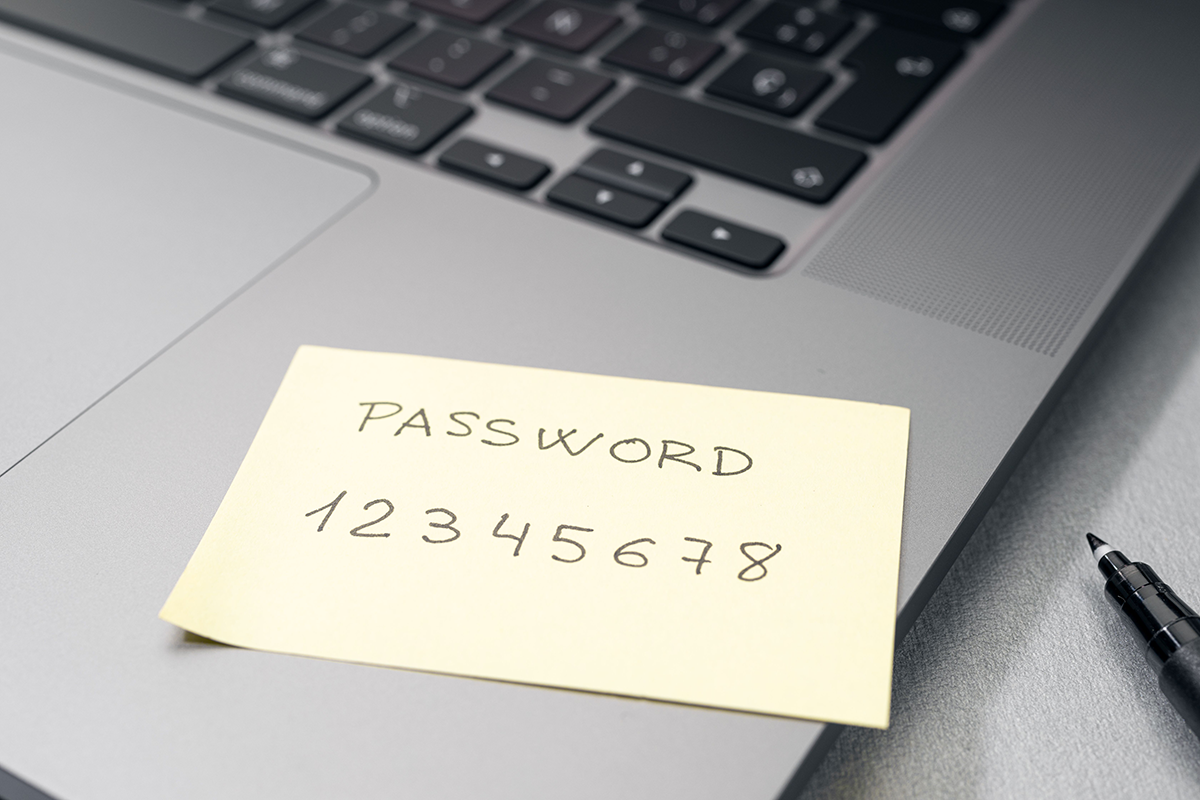As the temperatures drop, one thing heats up: phishing scams.
Fall is prime time for cybercriminals. From fake delivery alerts and bogus tax reminders to fraudulent donation requests and holiday offers, scammers tailor their tactics to seasonal trends—and small businesses are often the most vulnerable.
If you’re a Southeast Alaska business, now’s the time to strengthen your defenses. Here’s how phishing evolves in the fall, why it works, and what w recommend to protect your business before you become a target.
Why Fall? The Seasonal Shift in Phishing Scams

Phishing is a year-round threat, but the nature of attacks changes with the seasons. In the fall, cybercriminals take advantage of:
- Increased email traffic — end-of-year financials, tax planning, and pre-holiday operations mean your inbox is fuller than usual.
- Weather alerts & shipping scams — fake notices about power outages, storm delays, or UPS/FedEx deliveries spike during storm season.
- Back-to-school and seasonal hiring — scammers pose as job applicants, educators, or IT support targeting untrained staff.
- Holiday promotions & donation drives — fake gift cards, charity requests, and sales links are common ways to steal data or install malware.
The problem? Many of these emails look legitimate. Without proper training and filters, even your best employees might click.
What Makes Small Businesses in Southeast Alaska Vulnerable
Southeast Alaska presents unique cybersecurity challenges:
- Limited local IT support means delayed response to breaches or red flags.
- Remote work reliance increases email, chat, and cloud-system exposure.
- Tight-knit communities make personalized scams (“I’m friends with your vendor…” or “We met at the Chamber event”) more believable.
- Supply chain sensitivity — an urgent-looking vendor or shipping email can trigger fast action without verification.
Most phishing scams aren’t “high tech”—they’re smartly timed and socially engineered. That’s why preparedness matters more than ever.
Spotting a Fall Phishing Attempt: Red Flags

Teach your team to look for these signs in emails, texts, or pop-up messages:
- Urgency or fear tactics: “Your account will be closed in 24 hours…”
- Unfamiliar sender addresses that don’t match the claimed company.
- Grammatical errors or strange formatting.
- Unexpected attachments or file download links.
- Requests for sensitive info: login credentials, wire transfers, W-2s, etc.
- Spoofed email domains (like support@yourbusiness.co instead of .com).
- Hyperlinks that don’t match the display text—hover to see the real URL.
5 Ways to Protect Your Business from Fall Phishing Scams

Here’s your practical, Alaska-sized defense plan:
- Run a Phishing Simulation
Train your team by showing—not just telling. Phishing simulations are test emails that mimic scams. Employees who fall for them get redirected to educational materials. It’s a non-punitive, high-impact training method.
CHQ offers simulation campaigns tailored for Southeast Alaska industries.
- Update Your Email Filtering Tools
Basic spam filters aren’t enough anymore. Upgrade to a business-grade email security gateway or cloud-based protection platform that offers:
- Link scanning
- Attachment sandboxing
- Known threat pattern blocking
- Real-time alerting
If you don’t know what solution you’re using—CHQ can audit and upgrade your setup.
- Implement Multi-Factor Authentication (MFA)
Even if someone steals a password, MFA blocks access unless the scammer also has your second login method (like a phone or authentication app). It’s the single most effective way to stop phishing-driven data breaches.
Every business platform you use—email, accounting, POS, etc.—should have MFA enabled.
- Use Role-Based Access and Least Privilege Policies
Not everyone on your team needs access to everything. Reduce internal risk by:
- Assigning specific users to specific tools
- Limiting administrative rights
- Creating separate accounts for sensitive actions like payroll, billing, and vendor payments
If a phishing attack compromises one user, the damage is contained.
- Create a Clear Incident Response Plan
Employees must know:
- Who to contact if they click something bad
- What to do if a device shows unusual behavior
- Where to report suspicious emails
Having a 24/7 IT contact like CHQ reduces panic and speeds up recovery time.
How CHQ Protects Southeast Alaska Businesses
At Computer Headquarters, we know local businesses face unique IT threats—especially in the fall. We specialize in:
- Cybersecurity planning for weather and seasonal disruptions
- Ongoing monitoring and rapid-response for phishing attacks
- Staff training and simulation services
- Recovery and protection after a breach
- Secure backups and disaster recovery setups
- Full-service managed IT for Southeast Alaska
Whether you’re in Ketchikan, Juneau, Sitka, Wrangell, Petersburg, Prince of Wales, or a remote lodge with satellite internet—we’ve got you covered.
Cybersecurity Isn’t Seasonal, But Some Scams Are

Fall is a beautiful season in Southeast Alaska—but it’s also a prime time for digital threats.
By getting proactive with your training, tools, and support, you reduce your chances of being caught off guard. A scam email shouldn’t be the reason you miss a customer order, expose private data, or lock down your systems for days.
Contact CHQ today and let us help you outsmart phishing scams before they hit your inbox.






